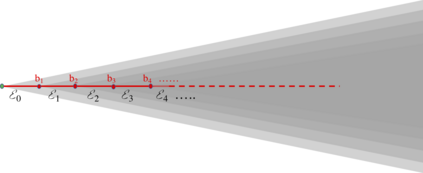A key component of blockchain technology is the ledger, viz., a database that, unlike standard databases, keeps in memory the complete history of past transactions as in a notarial archive for the benefit of any future test. In second-generation blockchains such as Ethereum the ledger is coupled with smart contracts, which enable the automation of transactions associated with agreements between the parties of a financial or commercial nature. The coupling of smart contracts and ledgers provides the technological background for very innovative application areas, such as Decentralized Autonomous Organizations (DAOs), Initial Coin Offerings (ICOs) and Decentralized Finance (DeFi), which propelled blockchains beyond cryptocurrencies that were the only focus of first generation blockchains such as the Bitcoin. However, the currently used implementation of smart contracts as arbitrary programming constructs has made them susceptible to dangerous bugs that can be exploited maliciously and has moved their semantics away from that of legal contracts. We propose here to recompose the split and recover the reliability of databases by formalizing a notion of contract modelled as a finite-state automaton with well-defined computational characteristics derived from an encoding in terms of allocations of resources to actors, as an alternative to the approach based on programming. To complete the work, we use temporal logic as the basis for an abstract query language that is effectively suited to the historical nature of the information kept in the ledger.
翻译:链链技术的一个关键组成部分是分类账,即一个数据库,它不同于标准数据库,它保存着过去交易的完整历史,保存在公证档案中,用于任何未来测试。在Etheyum等第二代的分类账中,与智能合同相结合,使得与金融或商业性质各方之间的协议有关的交易能够自动化。智能合同和分类账的结合为非常创新的应用领域提供了技术背景,如分散的自治组织(DAOs)、初始 Coin 提供公司(ICOs)和分散的金融(DeFi)等,它们将以往交易的完整历史历史历史历史历史历史记录系统(DeFi)模型化了合同概念的模型化,从而超越了像Bitcoin这样的第一代分类系统唯一的焦点。然而,目前使用智能合同作为任意的编程结构使其容易发生危险的错误,并使这些合同的语义脱离了法律合同。我们提议在这里将数据库的分裂和恢复其可靠性,方法是将我们作为固定的分类格式的契约概念化为固定的分类,将历史数据系统化为一个定义的逻辑基础,将历史数据系统化的模型化,将我们根据一个精确的计算方法,将历史数据系统化为一个固定的逻辑分析工具,将历史数据系统化为一个完整的计算方法,将历史数据结构化为一个完整的计算方法,将历史数据系统化为一种逻辑分析工具。








